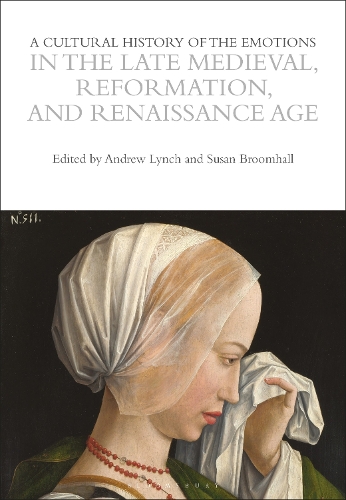
A Cultural History of the Emotions in the Late Medieval, Reformation, and Renaissance Age
(Paperback)
Available Formats
Publishing Details
A Cultural History of the Emotions in the Late Medieval, Reformation, and Renaissance Age
By (Author) Susan Broomhall
Edited by Andrew Lynch
Bloomsbury Publishing PLC
Bloomsbury Academic
17th November 2022
United Kingdom
Classifications
Professional and Scholarly
Non Fiction
European history
Ancient history
306
Physical Properties
Paperback
224
Width 168mm, Height 242mm, Spine 12mm
440g
Description
The period 1300-1600 CE was one of intense and far-reaching emotional realignments in European culture. New desires and developments in politics, religion, philosophy, the arts and literature fundamentally changed emotional attitudes to history, creating the sense of a rupture from the immediate past. In this volatile context, cultural products of all kinds offered competing objects of love, hate, hope and fear. Art, music, dance and song provided new models of family affection, interpersonal intimacy, relationship with God, and gender and national identities. The public and private spaces of courts, cities and houses shaped the practices and rituals in which emotional lives were expressed and understood. Scientific and medical discoveries changed emotional relations to the cosmos, the natural world and the body. Both continuing traditions and new sources of cultural authority made emotions central to the concept of human nature, and involved them in every aspect of existence.
Author Bio
Andrew Lynch is Professor of English and Cultural Studies at the University of Western Australia, Australia. His recent publications include Emotions and War: Medieval to Romantic Literature (2015, with Stephanie Downes and Katrina O'Loughlin) and Understanding Emotions in Early Europe (2015, with Michael Champion). Susan Broomhall is Professor of History at the University of Western Australia, Australia. She is the editor of Early Modern Emotions: An Introduction (2016), Gender and Emotions in Medieval and Early Modern Europe: Destroying Order, Structuring Disorder (2015), and Spaces for Feeling: Emotions and Sociabilities in Britain, 1650-1850 (2015), among others.
